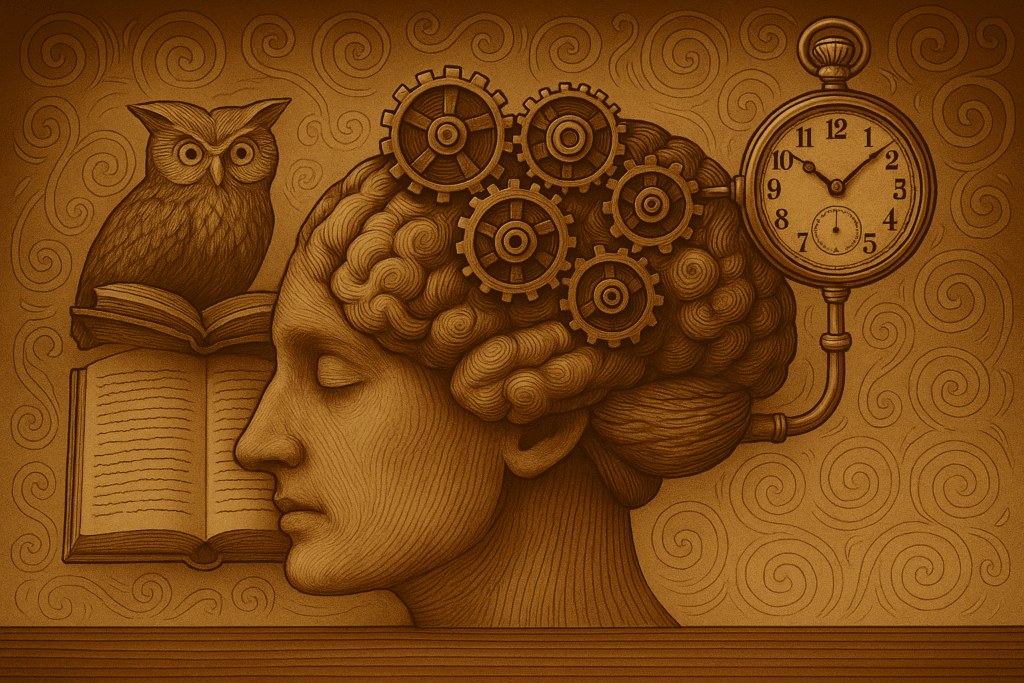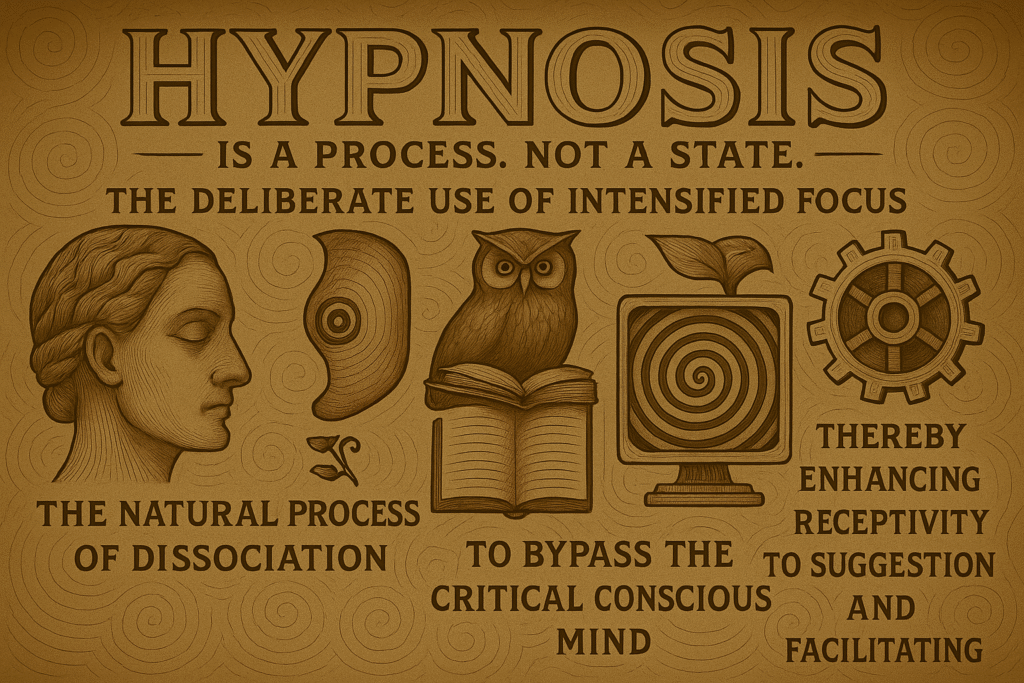
Defining
Hypnosis
What Is Hypnosis?
Every hypnotist you ask will give you a slightly different answer. Some say it’s a unique state of consciousness. Others believe it’s something we all naturally drift into throughout the day. The truth is, even scientists continue to explore what hypnosis is, how it works, and what mechanisms are behind its effects. That makes defining hypnosis… complicated.
Still, definitions matter. At Hoosier Hypnosis, we believe in making the process clear—so our clients feel confident, informed, and in control.
Let’s start with a commonly accepted definition from the Society of Psychological Hypnosis (Division 30 of the American Psychological Association):
“Hypnosis: A state of consciousness involving focused attention and reduced peripheral awareness characterized by an enhanced capacity for response to suggestion.”
This is a useful starting point—but it’s not the whole story. While accurate in part, we believe this definition leaves out key elements of the hypnotic process. It focuses heavily on altered states and suggestion, but doesn’t fully reflect how hypnosis works as a collaborative, active process rooted in intentional change.
Imprecise Half-Answers
Despite how definitive some definitions may sound, most fall short of capturing what hypnosis truly is—or what it isn’t. While science has made strides in understanding hypnosis through neuroimaging and cognitive research, there is still no single agreed-upon explanation for how it works or why certain effects occur. As with many aspects of consciousness, hypnosis remains a complex and evolving subject.
Take, for example, Merriam-Webster’s current definition: “a trance-like state that resembles sleep but is induced by a person whose suggestions are readily accepted by the subject” or “any of various conditions that resemble sleep.” These definitions not only oversimplify the process but also mischaracterize hypnosis entirely. Hypnosis is not sleep. Unlike sleep, the hypnotic state is marked by heightened awareness, focused attention, and increased responsiveness to suggestion—qualities that are quite the opposite of being unconscious or unaware.
Part of this confusion stems from the word itself. “Hypnosis” is derived from the Greek word hypnos, meaning sleep. However, James Braid—the 19th-century physician who popularized the term—later regretted his choice. He realized a more accurate name would have been monoideism, referring to a focused concentration on a single idea. That better reflects both the experience and function of hypnosis: not unconsciousness, but intentional, narrowed attention.
These imprecise definitions continue to fuel myths and misunderstandings about hypnosis. At Hoosier Hypnosis, we believe it’s time for a definition that reflects the science, the experience, and the real-world effectiveness of this remarkable tool.
Defining Hypnosis: Our Definition
Let’s return to the standard definition we opened with:
“A state of intensified focus with lessened peripheral awareness, characterized by an enhanced capacity for response to suggestion.”
While one of the more precise definitions in circulation, this is still inaccurate.
Thus, we believe a clearer, more functional definition is required. One that reflects neuroscience as well as the practical and therapeutic reality of the process.
Here’s how we define hypnosis:
Hypnosis is a process, not a state. It is the deliberate use of intensified focus (and the natural process of dissociation) to bypass the critical conscious mind, thereby enhancing receptivity to suggestion and facilitating change.

Why Change Such A Small Detail?
This is a subtle but crucial shift in how we frame hypnosis. Rather than labeling hypnosis as a “state” someone passively enters, we recognize it as an active process—a dynamic interaction between hypnotist and client that leverages natural mental mechanisms.
In particular, hypnosis uses a form of positive dissociation—a healthy, intentional separation from distraction, overthinking, or limiting beliefs. It’s the same mechanism behind getting lost in a good book or becoming so absorbed in a task that hours fly by. In hypnosis, we simply guide that focus toward a purpose: change.
It’s also important to clarify a common misconception:
You don’t need trance to have hypnosis.
While trance can deepen the hypnotic experience and make suggestions more effective for some people, the hypnotic process itself doesn’t require eyes to be closed or the body to be still. Hypnosis can be conversational, interactive, or even active. The defining factor is not how relaxed you look—but how open your mind becomes to suggestion, insight, and transformation.
At Hoosier Hypnosis we believe that we use hypnosis to bypass the conscious mind. Defining hypnosis and how we do that We work directly with your unconscious to enact massive and fast-acting change in your life. This is why we can help someone quit smoking in only a few sessions or change a lifetime of habits.
For further information see our All About Hypnosis page for more topics.
